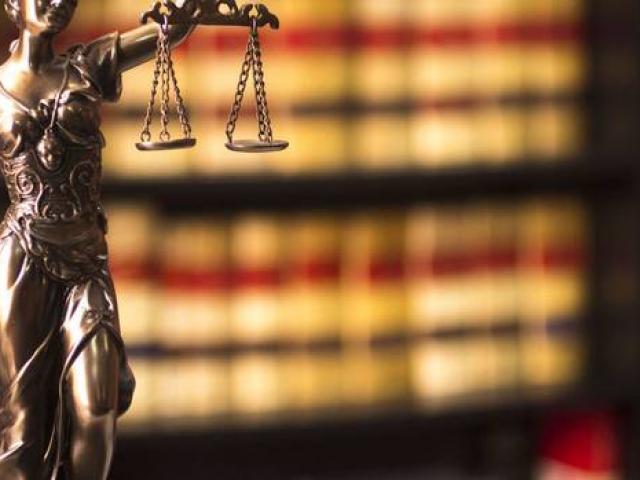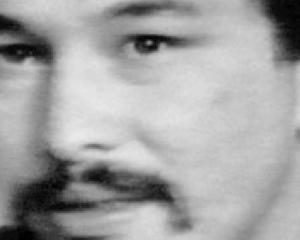
A confidential online survey - in which 13,662 lawyers were invited to take part - was conducted from April 5 to May 1. The survey was managed by Colmar Brunton.
However, only 3516 lawyers completed the survey – a response rate of 26 percent.
The survey was the most thorough examination of the legal profession's workplace environment, said the Law Society, which commissioned the investigation following increasing numbers of young women complaining about sexual harassment within the profession.
Most notably were the allegations at law firm Russell McVeagh.
New Zealand Law Society president Kathryn Beck said the findings were "deeply saddening" and showed "there is a cultural crisis in the New Zealand legal profession".
Nearly one in five lawyers have been sexually harassed on the basis of the Human Rights Commission definition, according to the survey - released today.
Some 18 percent of lawyers (31 percent of women and 5 percent of men) have been sexually harassed during their working life, the survey found.
Ten per cent of lawyers (17 percent of women and 3 percent of men) have been sexually harassed in the past five years, while 28 percent of lawyers have witnessed sexual harassment in a legal environment during their working life (to date).
In the past five years, 33 percent of female lawyers also experienced crude/offensive behaviour, such as sexually suggestive comments or jokes that made them feel offended.
The survey also showed 30 percent received unwanted sexual attention, such as intrusive questions about their private life or physical appearance that they found offensive.
Twelve percent received inappropriate physical contact/sexual assault, and 5 percent sexual coercion.
One in five lawyers have also been bullied in a legal environment during the past six months.
The survey discovered that 52 percent of lawyers have ever experienced bullying to some degree and 21 percent of lawyers have experienced bullying in the past six months.
Six percent of lawyers have frequently - from several times a month to daily - experienced bullying in the past six months.
In the past six months, 24 percent of all lawyers have frequently experienced work-related bullying, 15 percent have frequently experienced person-related bullying, and 4 percent have frequently experienced physically intimidating bullying.
The results, however, showed most lawyers enjoy their work but workplace pressures were evident.
About 79 percent of lawyers get a "great deal of satisfaction" from their job, and enjoy the respect they deserve from colleagues and managers (including partners and directors).
However, workplace stress is also common, with 60 percent finding their job very stressful and 44 percent feeling they work under unrealistic time pressures.
Nearly three in 10 think major changes are needed to the culture of their workplace.
Both area of practice and demographic characteristics are discriminating factors in workplace wellbeing. Some aspects of Asian and Maori lawyers' workplace wellbeing are less favourable and may warrant further exploration.
In a statement, Beck thanked the courageous young women who, in telling their stories of being sexually harassed at work and leading this discussion, have allowed light to be shone into corners of the legal profession which have been under cover for too long.
"We must call a spade a spade - there is a cultural crisis in the New Zealand legal profession," she said.
She added that she was not interested in relative performance on these measures against other parts of the New Zealand workforce or population.
"This is about the legal profession," she said.
"New Zealanders expect our profession to operate to the highest standards of integrity with a commitment to fairness, equity and justice. This survey makes it crystal clear that we are not meeting that expectation, we are failing to keep our own people safe and we cannot stand for this.
Beck said, like the legal profession generally, the Law Society had been caught flat-footed by the wave of sexual harassment and assault accusations.
She acknowledged the Law Society had not provided the cultural leadership to the profession that, with the benefit of this research, is now so obviously required.
"I'm disappointed that this research is a surprise to us. I'm disappointed we heard about so much through the media. I'm disappointed that, for whatever reason, people chose not to report their experiences to us. I'm disappointed that for so many people, the law has not been a safe profession."
A regulatory working group that the Law Society has already established, chaired by Dame Silvia Cartwright, is further examining many of these matters and potential changes to regulatory systems that guide the legal profession.
"The New Zealand legal profession is now in the middle of a major cultural disruption," Beck said.
"It cannot and will not return to the way it was. While painful, embarrassing and difficult to confront, this disruption is a gift from courageous young people that the New Zealand legal community will not squander."
Comments
On RNZ, Olivia Wensley referred to 'the 8', the hardcore of legal firms.
Because these offences are illegal, charges would curtail them. The hierarchical structure has apparently made this impossible, unless you leave the profession.












